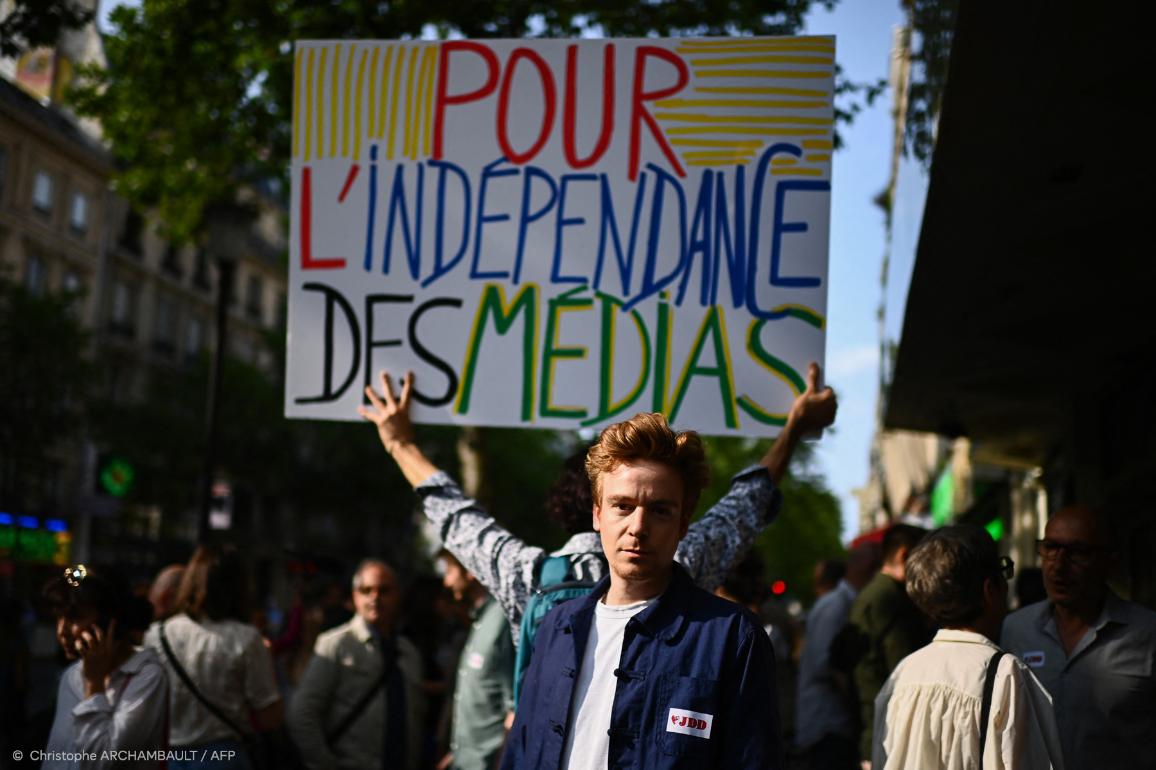21 media organizations signed a letter requesting the member states of the European Union, the regulatory authorities, and the European Commission to take steps for efficient implementation of the European Media Freedom Act adopted by the European Parliament on March 13. This is the first law regulating this sphere at the EU level. The list of the signatories includes the Independent Journalism Center from Moldova.
The European Media Freedom Act was adopted with the vote of 464 MEPs at the plenary session in Strasbourg, 92 votes were against, and 65 deputies abstained from voting. The document will oblige the EU states to protect the independence of the press from economic, political, and governmental interference, and prohibit all types of intervention in editorial decisions. Among other things, the authorities will be prohibited from pressure against journalists and publishers in order to reveal their sources, including by such means as detention, imposing sanctions, searching their offices, or installing surveillance software on their gadgets, according to the press release issued by the European Parliament. The source also stipulates significant guarantees against situations in which spyware could be used.
In addition, all the media outlets will be required to publish information regarding their ownership structure. They will be registered in the national database, and editorial boards will have to indicate whether they are directly or indirectly state-owned. Besides, the MEPs also developed a tool for preventing large online platforms such as Facebook, X (previously known as Twitter), or Instagram, from randomly restricting or deleting independent media content. The platforms will initially have to distinguish between independent media and non-independent sources, according to the statement.
Pursuant to the new legislative framework, the European Board for Media Services will be established as a new authority at the European level consisting of the national regulatory authorities.
“Journalists now have an ally, a toolkit which protects them, increases their independence, and helps them cope with the challenges, interference, and pressure they are often faced with at their workplace. This regulation is a response addressed to Orbán, Fico, Janša, Putin, and those intending to transform the media into their own propaganda tools or to spread fake news and to destabilize our democracies. No journalist should ever fear pressure of any sorts when doing their job and informing the citizens,” Ramona Strugariu, rapporteur of the Committee on Civil Liberties, declared in plenary.
Briefly after its adoption, 21 media organizations issued a public letter stating that the European Media Freedom Act provides only for minimum standards in certain spheres. “Member States can, and should, go much further in establishing stronger safeguards to protect media freedom and pluralism and journalists’ rights, in particular from the use of intrusive surveillance and spyware,” the document says.
“We now call on the European Commission, national governments, and independent regulatory authorities to work closely with media stakeholders for the EMFA’s full and effective implementation to help strengthen media freedom and pluralism across the European Union. To aid this process, some of the undersigned organisations will be preparing, where necessary, assessments and recommendations to help Member States, media and civil society stakeholders with this crucial task,” the signatories conclude.
